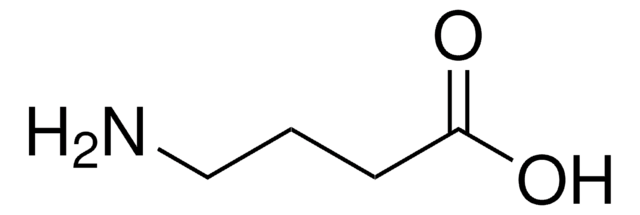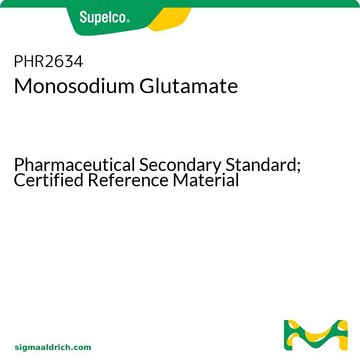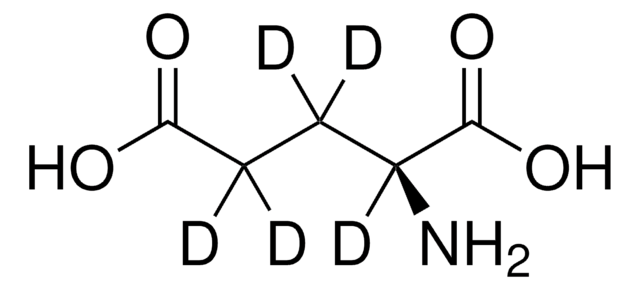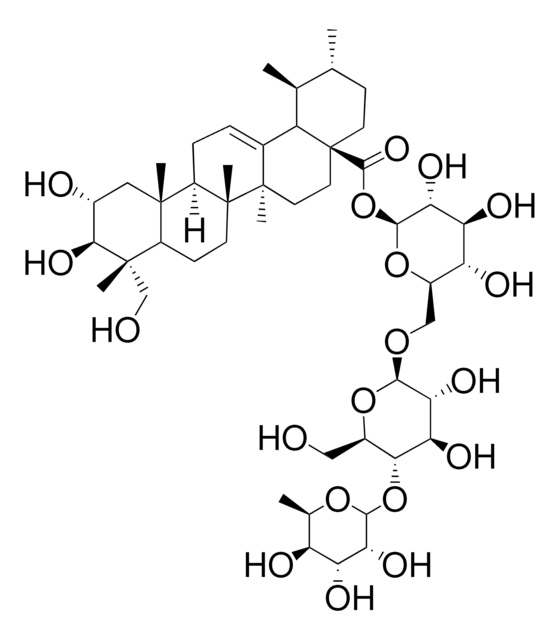03835
γ-Aminobutyric acid
analytical standard
Synonyme(s) :
3-Carboxypropylamine, 4-Aminobutanoic acid, GABA, Piperidic acid, Piperidinic acid
About This Item
Produits recommandés
Qualité
analytical standard
Niveau de qualité
Pureté
≥97.0% (HPLC)
Durée de conservation
limited shelf life, expiry date on the label
Classe(s) chimique(s) de l'analyte
amino acids, peptides, proteins
Technique(s)
HPLC: suitable
Impuretés
≤1.0% water
Pf
195 °C (dec.) (lit.)
Application(s)
cleaning products
cosmetics
flavors and fragrances
food and beverages
personal care
Format
neat
Chaîne SMILES
NCCCC(O)=O
InChI
1S/C4H9NO2/c5-3-1-2-4(6)7/h1-3,5H2,(H,6,7)
Clé InChI
BTCSSZJGUNDROE-UHFFFAOYSA-N
Vous recherchez des produits similaires ? Visite Guide de comparaison des produits
Description générale
Actions biochimiques/physiologiques
Code de la classe de stockage
11 - Combustible Solids
Classe de danger pour l'eau (WGK)
WGK 3
Point d'éclair (°F)
Not applicable
Point d'éclair (°C)
Not applicable
Faites votre choix parmi les versions les plus récentes :
Déjà en possession de ce produit ?
Retrouvez la documentation relative aux produits que vous avez récemment achetés dans la Bibliothèque de documents.
Les clients ont également consulté
Notre équipe de scientifiques dispose d'une expérience dans tous les secteurs de la recherche, notamment en sciences de la vie, science des matériaux, synthèse chimique, chromatographie, analyse et dans de nombreux autres domaines..
Contacter notre Service technique








